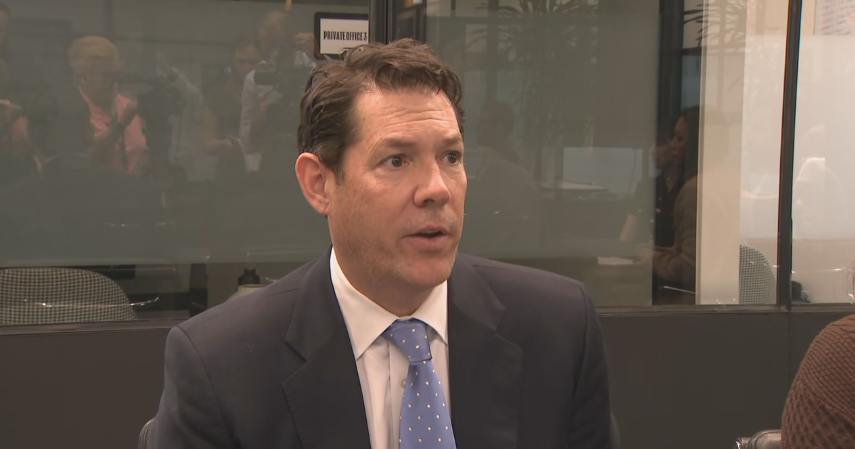Insurers, Doctors Making It Hard To Get Breakthrough Cholesterol-Lowering Drugs
WASHINGTON (CBS/AP) -- When a powerful pair of cholesterol-lowering drugs first hit the market last summer, initial excitement in the medical community quickly turned to panic.
The new drugs promised to reduce artery-clogging cholesterol by nearly twice as much as older ones. But they came at an eye-popping price: more than $14,000 per year, compared with roughly $150 for the standard drugs.
Some experts predicted a doomsday scenario in which the two injectable drugs, Repatha and Praluent, would add a staggering $100 billion to the U.S. drug bill as doctors signed up millions of patients with elevated cholesterol. But then something unexpected happened: not much.
Caught between skeptical doctors and cost-conscious insurers, the drugs have barely sold. Sanofi reported a meager $10 million from Praluent in the last quarter, which it co-markets with Regeneron Pharmaceuticals. Amgen Inc. declined to break out Repatha sales.
Spending on pricey specialty drugs has doubled over the last five years to $150 billion, contributing 70 percent of the growth in U.S. medication spending since 2010, according to IMS Health. But the startlingly slow launch of Praluent and Repatha suggests insurers may have found their own formula for fighting back: proof-of-effectiveness requirements and rigorous paperwork that limits how many patients ultimately receive high-cost drugs. Experts see an escalating feud between drugmakers and insurers with little relief in sight.
"The companies think that their drug is going to save a lot of lives and payers tend to be skeptical of those claims -- somewhere in the middle is the truth" says Professor Darius Lakdawalla of the University of Southern California.
Generally speaking, insurers only cover the costs of the new drugs for patients with extremely-high cholesterol caused by genetic disorders, or those with a history of heart problems and elevated cholesterol. The insurance paperwork can run several pages and often requires a detailed history of past treatments.
Caught in the middle of the coverage fight are patients who say they desperately need more options to control bad cholesterol, or LDL.
Christian Jacobs, 24, takes eight medications to manage his cholesterol and related complications, including blood thinners for the seven artery-opening stents he's received since 2011. He has a rare form of inheritable cholesterol that occurs in roughly one in a million people. So he was shocked when his insurance provider, UnitedHealth, rejected his doctors' prescription for Repatha.
"I was floored," he said. "How in the world can we be rejected for a medication that I meet every single standard for?"
Jacobs said UnitedHealth recommended he continue his current drug regimen to see if it lowers his cholesterol. He is appealing the decision.
UnitedHealth, which declined to comment on Jacobs' situation due to patient privacy laws, said in a statement it uses "clinical guidelines and scientific evidence" when making coverage decisions.
"These new therapies offer additional LDL cholesterol lowering and outcomes studies are still pending," said the firm.
Recent medical history is littered with once-promising drugs that lowered test results like cholesterol, yet failed to actually help patients. Considering the high prices and limited data, many doctors favor a "go slow" approach.
"If you're going to spend that kind of money on a medication then you need to know that it's really doing something," said Dr. Hal Chadow of Brookdale University Hospital. Chadow has successfully prescribed the drugs to several high-risk patients, but he wants to see more research before using them more broadly.
Some of the nation's top cardiologists predict the drugs will eventually reduce heart attack rates far below levels currently seen with statin pills, the standard-of-care for high cholesterol since the 1990s. But studies confirming those benefits are still months away, a key reason insurers demand extensive documentation before reimbursing the drugs.
"I really think it's a disservice to the public health to put people in charge of this who are essentially bean counters," said Dr. Steven Nissen of the Cleveland Clinic. The medical center has assigned an expert to coach doctors on completing the insurance paperwork.
Industry figures suggest a high bar: 90 percent of claims for Repatha and Praluent were initially rejected in the last quarter of 2015, according Symphony Health, a firm that analyzes insurance data.
The companies doing the rejecting say they are merely following prescribing instructions on the medicines, which are approved by the Food and Drug Administration. Dr. Steve Miller of Express Scripts, the largest pharmacy benefit manager, says the company is approving more claims as doctors get better at picking "the right patients and making sure they have adequate supporting data."
Wall Street continues to bet that the drugs, known as PCSK9 inhibitors, will become blockbusters -- eventually. While many have slashed short-term estimates, most analysts predict that Repatha and Praluent will generate combined annual sales of over $5 billion by 2020, according to polling by Evaluate Pharma. Drugs that generate $1 billion or more annually are considered blockbusters.
The analyst projections depend on one key assumption: that follow-up studies show the drugs reduce heart attacks and death. Amgen is expected to unveil data from its pivotal study later this year, with a similar study from Sanofi next year.
But even assuming those studies pan out, some experts say the drugs -- which are self-injected once or twice a month, depending on the medication and indication -- are still overpriced.
One analysis concluded that PCSK9 drugs represent a "low" value for patients and said a fairer price would be roughly half the list price, or between $5,000 and $8,000 per year, according to the Institute for Clinical and Economic Review. Sanofi and Amgen each criticized the group's analysis, disagreeing with its methods and conclusions. The Boston nonprofit receives funding from foundations, insurers, drugmakers and academic institutions.
Dr. Steven Pearson, the group's president, says new approaches are needed for pricing medicines based on performance.
He points to another pricey drug launched last summer: Novartis' heart failure drug, Entresto, has been shown to reduce hospitalizations and death more than older drugs. But its $4,600 annual price has slowed uptake.
Novartis has signed unusual "pay-for-performance" contracts with several insurers, offering partial refunds if the drug fails to deliver better outcomes.
Pearson's group gave the drug positive marks in an evaluation last year: "We came out saying: good evidence on clinical effectiveness and good value."
In November, Amgen announced a similar agreement with Harvard's Pilgrim Health Care system. If Repatha doesn't lower patients' cholesterol to levels seen in company trials, Harvard Pilgrim gets a rebate.
That approach is already used in Europe and could become more common here.
"I think payers really are interested in working with manufacturers to find a way out of the cul de sac in which they find themselves," Pearson said.







